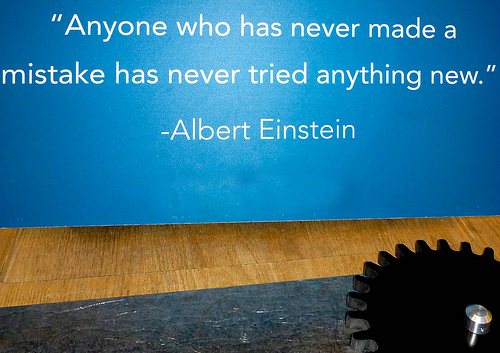Science Is Story: How Science and Storytelling Teach a Love for True Discovery

Stories can impact the future. No one knows that better than science fiction authors, and writer-scientists. As we celebrate our Interstellar Day of Science and Storytelling today, Friday, May 8, we’re talking the power of story in science . Today, Sara McBride, longtime Wrimo and biologist, shares how both science and storytelling teach us to embrace discovery:
Eureka discoveries in science, and brilliant spontaneous truths in improv are both born from living in the moment. It’s improvising dangerously to get not only yourself, but your partner in trouble. It’s attempting experiments that might break a well-known dogma. It’s pursuing a freedom that others might call risky and reckless. But this is the truth I’ve learned from improvising stories that I now apply to science: living in the moment isn’t risky and reckless, it’s brave, adventurous and leads to eureka moments—in stories and in science.
Our world is filled with rules. Don’t put your elbow on the table. (Try it in a fancy restaurant. It’s so liberating!) Don’t cut the tag off the pillow. (Are there pillow police? Does it upset the tooth fairy?) But to assume that a molecule reacts the same way in all situations is a dumb rule. To never block an offer in improv because it might hurt your partner’s feelings is a dumb rule. Rules are meant to be pushed, tested and broken.
Now let’s conduct a little experiment and live in the moment by reversing all those statements: To assume that a person reacts the same way in all situations is a dumb rule. To never block your scientific partner’s ideas because it might hurt their feelings can lead to planetary destruction—thus a dumb rule. (Honestly, how many times could Bruce Banner have prevented Tony Stark from inventing something horrible if he’d had the bravery to sit him down for a little “Let’s consider the consequences” chat?) In science and in stories, it’s best just to play the game, “What’s next?”
In long-form narrative improv, where we improvise entire two-hour plays, we must constantly adjust what the story is and where the conclusion will end up. It’s a great lesson for scientists. You can enter a research project with a cast of characters (molecules/proteins) and a few scene ideas (experiments) for the first act, but then watch what relationships form and follow them to the final conclusion.
Never enter a research project, or an improvised play, with a pre-set conclusion in your head. It’s a horrible way to improvise, and often results in deceitful science because the author chooses to listen to only half the data in order to satisfy his preconceived conclusion. Live in the moment. In stories and in science, the honest discoveries are the most satisfying. Follow the data as it presents itself and weave a new story never before conceived. If the scientist and the improviser live in the moment, then the potential for discovery is limitless.

Sara W. McBride holds a degree in theater from UCLA and a totally separate degree in molecular and cellular biology from SDSU. Sara recently published two of her favorite research projects: “Microbiota Modulate Behavioral and Physiological Abnormalities Associated with Neurodevelopmental Disorders” in the world’s top scientific journal, Cell, and “Traveling with a Gingerbread Man” in the beautifully designed travel magazine, Solo Travelist. Sara has been actively participating in NaNoWriMo since 2003, is the founder of LA’s Improv for Writers, and owns & operates Lemur Publishing, a fundraising publishing house focusing on NaNoWriMo authors. She can also be seen performing every Sunday evening with Impro Theater’s Los Angeles Theater Sports.
Top photo from Flickr user okeos.
Chris Baty's Blog
- Chris Baty's profile
- 63 followers



